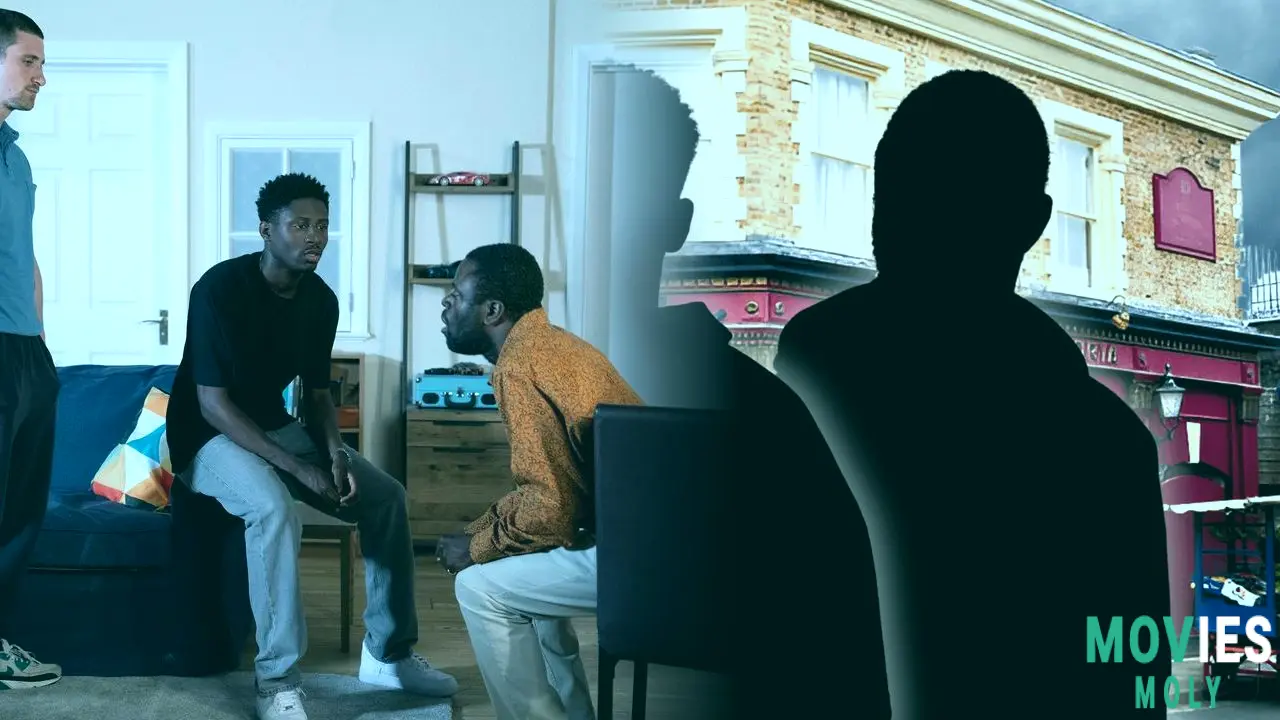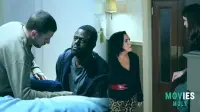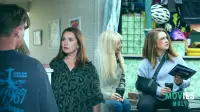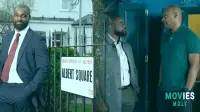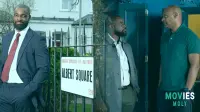The streets of Walford just got even tougher. A harrowing storyline exploring the insidious crime of Cuckooing has reached a tragic, violent climax, leaving a major character dead and shining a spotlight on the often-hidden dangers of exploitation.
TL;DR- Okie Okyere has died after being accidentally stabbed by Harry Mitchell during a heated confrontation.
- The tragic event is the culmination of a "cuckooing" storyline where vulnerable Kojo Asare was exploited for drug operations.
- EastEnders collaborated with charities like Causeway, National Autistic Society, and The Ben Kinsella Trust to ensure accuracy and raise awareness.
Unpacking the Shocking Conclusion to a High-Stakes Storyline
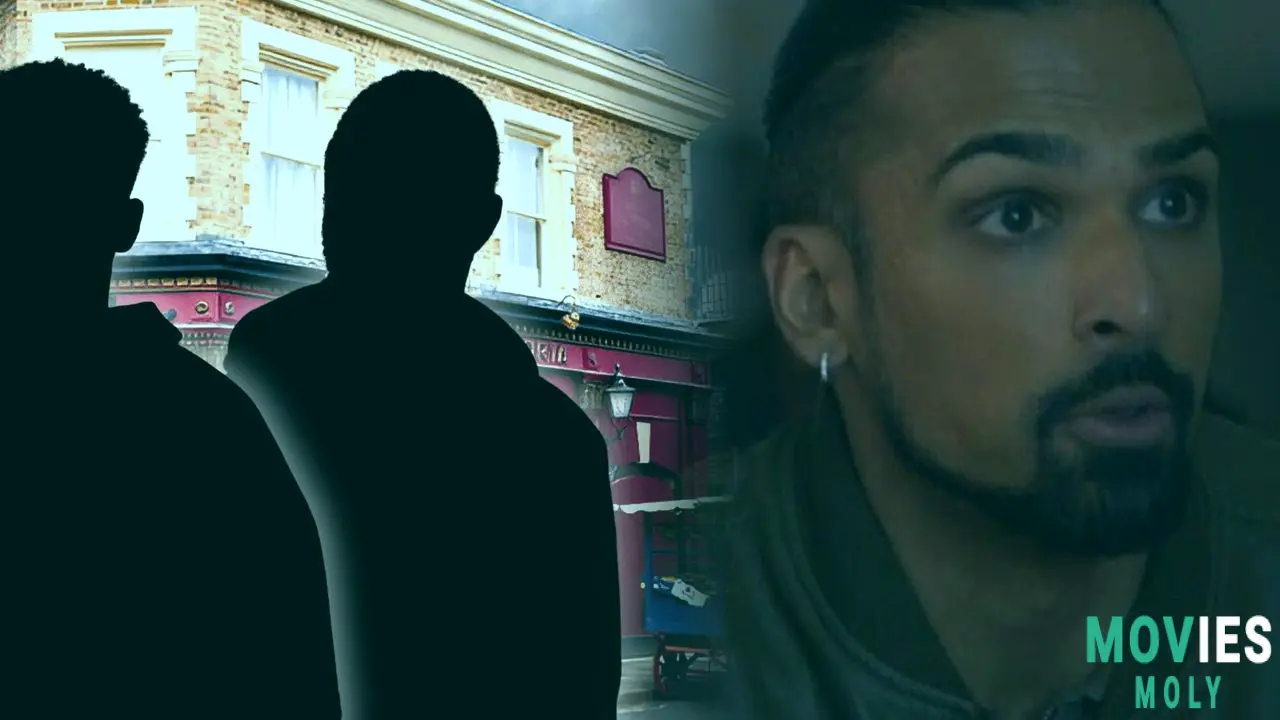
Imagine finding yourself in a situation so desperate, so manipulated, that a moment of self-defense turns into a fatal accident. That's the devastating reality facing Harry Mitchell in Eastenders this week, as the gripping cuckooing storyline wraps up with a shocking death.
For weeks, viewers have watched Kojo Asare, played by Dayo Koleosho, fall victim to the devastating crime known as "cuckooing." This isn't just a dramatic plot device; it's a cruel and dehumanising form of exploitation where criminals, like Ravi Gulati (Aaron Thiara) and Okie Okyere (Aayan Ibikunle Shoderu), invade and take over a vulnerable person's home to conduct illegal activities, most notably drug operations. Kojo, who is autistic, was particularly susceptible, as his flat became a hub for Ravi and Okie's network, forcing him into the dangerous role of a drug mule. Harry Mitchell (Elijah Holloway), initially involved in the scheme, gradually became horrified by the escalating manipulation, eventually leading to him and Kojo being held hostage within Kojo's own home. Source: Radio Times, "EastEnders confirms major character death as consequences of cuckooing story revealed," November 10, 2025.
The Unraveling of the Exploitation and a Fatal Confrontation
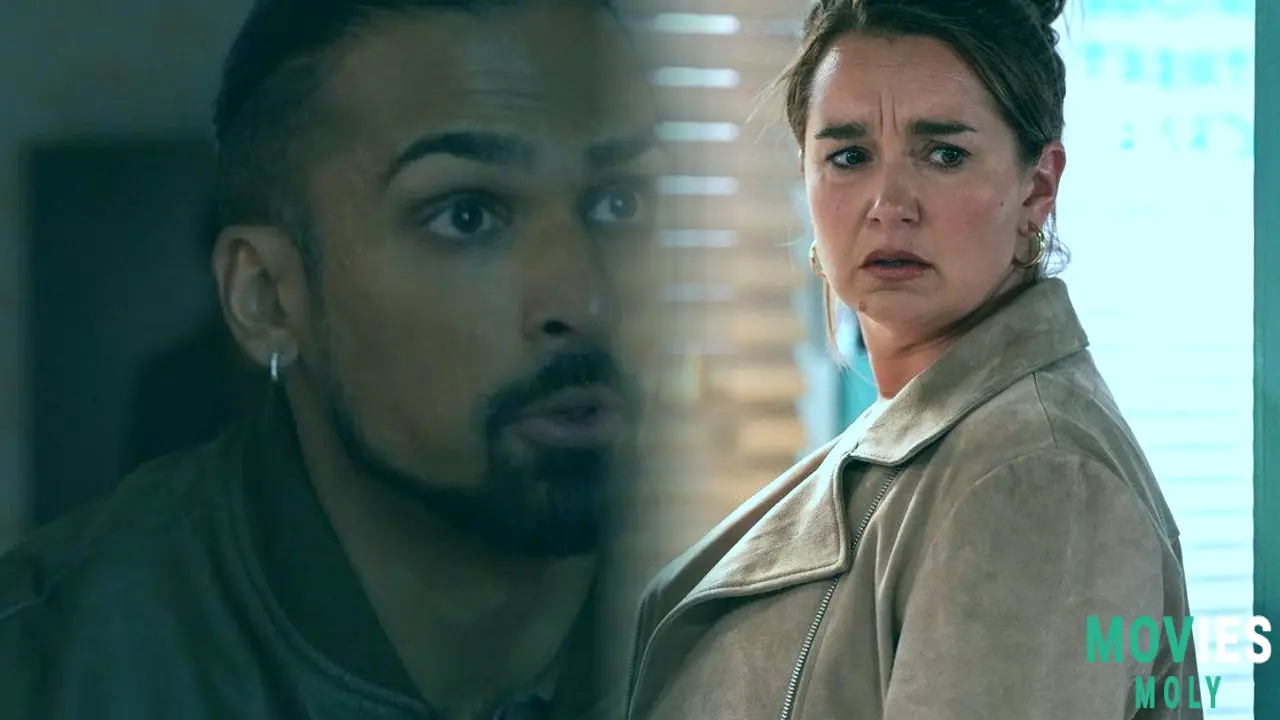
Last week, Kojo and Harry managed to break free from Okie's clutches, a temporary reprieve that promised an end to their ordeal. However, their freedom came with a heavy price: they reported everything to the police. This week, the past catches up to them in a dramatic, irreversible way.
Harry and Kojo came face-to-face with Okie once more. An argument erupted, fueled by the revelations made to the police. In a moment of intense pressure, while defending his friend Kojo, Harry accidentally stabbed Okie. EastEnders has confirmed that Okie will tragically die from these injuries. Source: BBC, "EastEnders spoilers follow," (undated, referencing this week's episodes).
This fatal incident highlights the dangerous ripple effects of criminal exploitation. While Harry's actions were in self-defense, the unintended consequence underscores the high stakes involved when vulnerable individuals are caught in such webs, demonstrating how quickly a situation can spiral out of control.
Ravi Gulati's Arrest and the Long Arm of Justice
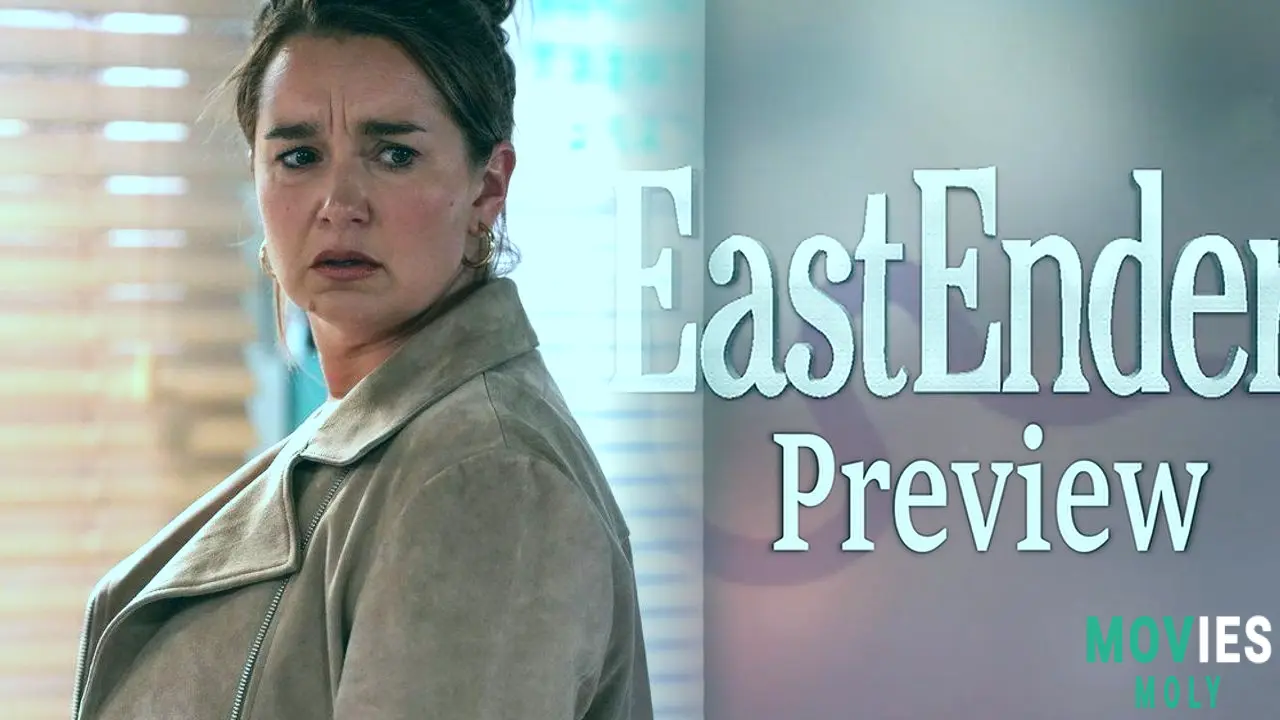
The criminal enterprise didn't end with Okie's death; it also brought Ravi Gulati, the ruthless orchestrator behind the drug operations, to a dramatic reckoning. After Harry, recovering from his ordeal, bravely chose to provide a full account to the police, the walls began to close in on Ravi. He was confronted by Okie, whom he had previously berated for his failures while Ravi was supposedly on holiday with his daughter, Avani Nanda-Hart. In a desperate attempt to escape Walford and the consequences of his actions, Ravi tried to flee. However, his efforts were in vain as police arrived and arrested him, charging him with serious offenses including the supply of controlled drugs and human trafficking. Source: Manchester Evening News, "EastEnders fans 'work out' what happens next to Ravi Gulati after Harry Mitchell kidnapping twist," November 5, 2025.
This isn't necessarily the end of Ravi's story, as eager fans on social media have been quick to speculate. Some theorize he might attempt to leverage past secrets, perhaps even blackmailing Jack Branning, given their intertwined history and Jack's accidental shooting of Zoe Slater. This potential twist only adds more layers to the unfolding drama, proving that even a major character's arrest can fuel further intrigue in Albert Square.
"At EastEnders, we’re proud to tell stories that reflect the real challenges people face, and Kojo’s cuckooing storyline is one that feels especially important. Cuckooing is a form of exploitation that too often goes unseen and hasn’t featured on EastEnders before. Through Kojo’s experience we hope to have shined a light on how easily vulnerable people can be manipulated and isolated - something that can happen in any community, but feels particularly resonant in a city like London, where people live side by side and yet can still slip through the cracks."
— Ben Wadey, Executive Producer, EastEnders
Collaborating with Experts to Portray Complex Social Issues Accurately
One of the most powerful and commendable aspects of this deeply troubling storyline is EastEnders' unwavering commitment to accuracy and sensitivity. Recognizing the gravity and complexity of these real-world issues, the production team went above and beyond, collaborating extensively with several key charities and experts. Their aim was to ensure that the portrayal of cuckooing, its profound impact on vulnerable individuals, and the harsh realities of knife crime were handled with the utmost care, authenticity, and respect, moving beyond mere dramatic spectacle.
Leading the charge on the exploitation aspect was Causeway, a prominent modern slavery and crime reduction charity. Helen Ball, CEO of Causeway, eloquently highlighted the insidious nature of cuckooing, describing it as "a cruel and dehumanising form of exploitation where the home of someone vulnerable is taken over by criminals." Their invaluable input wasn't just about general advice; it involved meticulous research behind the storyline, helping the showrunners accurately depict how grooming and exploitation signs manifest, thereby empowering viewers to potentially spot these in their own communities.
Adding another critical layer of authenticity, the National Autistic Society provided expert guidance specifically for Kojo's character, who is autistic. Dr. Judith Brown, Head of Evidence and Research at the National Autistic Society, shed light on a sobering statistic: "The awful truth is that autistic people are more at risk of abuse, victimisation and exploitation than non-autistic people." She explained that autistic individuals can often find it challenging to interpret social cues, emotions, and subtle manipulative behaviours, making them particularly vulnerable. This collaboration was designed to encourage autistic individuals, and parents of autistic children, to better understand what abuse and exploitation can look like, offering a crucial lifeline through increased awareness.
Finally, in confronting the tragic culmination of the story, EastEnders consulted with The Ben Kinsella Trust. This vital charity is passionately dedicated to tackling knife crime through powerful education and campaigning efforts. Their expert advice was absolutely instrumental in navigating the sensitive depiction of Okie’s fatal stabbing scenes, ensuring they were presented with accuracy and profound responsibility. The goal was not to sensationalize, but to illustrate the devastating consequences of knife crime in a way that resonated deeply and authentically with the audience.
Navigating the Nuances of Portraying Sensitive Topics on Television
Bringing such dark, intricate, and deeply sensitive real-world issues to a mainstream, beloved soap opera like EastEnders is always a delicate and complex balancing act. On one hand, the show's colossal reach offers an unparalleled and invaluable platform to educate millions about often-hidden crimes like cuckooing and the harrowing dangers of knife crime. The meticulous efforts of the producers and the collaborating charities demonstrate a clear intent to demystify these issues, making them visible, understandable, and approachable for a diverse audience, potentially prompting real-world action.
However, a natural limitation inherent in any dramatization, even one striving for authenticity, is the inherent necessity of compressing highly complex, often protracted real-life events into structured, digestible narrative arcs. While EastEnders has clearly striven for realism, the 'accidental' nature of Okie's death, though undeniably tragic and impactful, might, in some interpretations, simplify the grim and often brutal realities of knife crime. In many real-world incidents, intent can be more premeditated, or escalations more coldly calculated, than what is portrayed in a moment of panic. Yet, by choosing to show the sheer terror, the lack of premeditation, and the immediate, devastating, and unintended consequences, the storyline powerfully illustrates how incredibly quickly a situation involving a weapon can turn fatal, even when violence isn't the primary goal. This perspective offers a different, but equally crucial, cautionary tale about the irreversible nature of engaging with weapons.
"The awful truth is that autistic people are more at risk of abuse, victimisation and exploitation than non-autistic people. Because autistic people can find it hard to interpret social cues, emotions and inferred meaning, some may not always recognise manipulative or dangerous behaviours from others. We hope this storyline encourages any autistic person or parent of autistic children to learn what abuse and exploitation can look like."
— Dr. Judith Brown, Head of Evidence and Research, National Autistic Society
A Real-World Scenario: Recognizing the Signs of ExploitationExample: Consider the story of David, a seemingly unremarkable, slightly reclusive man in his early 60s who lived in a quiet corner of London. For months, his once-tidy flat began to show signs of disarray. Neighbors noticed a revolving door of unfamiliar faces, mostly young men, coming and going at odd hours. The distinct smell of cannabis occasionally wafted from his door. David himself grew more withdrawn, his usual friendly wave replaced by a hurried glance. When his local postman, who had delivered to David for years, noticed a significant weight loss and a nervous tremor in David’s hands, he recalled snippets from the EastEnders storyline about cuckooing. Instead of just observing, he subtly raised his concerns with a local community outreach team. This small, observant act by someone who knew David and spotted changes, spurred by awareness from a TV drama, could be the vital first step in identifying and stopping the exploitation of a vulnerable individual before it escalates into something far more dangerous or tragic.
Practical Takeaways for Identifying and Addressing ExploitationThe storyline, while fictional, serves as a powerful reminder of real-world dangers. Here's what we can learn:
- Know the Signs of Cuckooing: Look for increased visitors, unfamiliar faces, drug paraphernalia, changes in the resident's appearance or behavior, or signs of neglect in the home. Be alert to these subtle shifts.
- Understand Vulnerability: Criminals actively seek out and exploit those who are isolated, struggling with addiction, mental health issues, or neurodevelopmental conditions like autism. Recognise that vulnerability can take many forms.
- Don't Be Afraid to Speak Up: If you suspect someone is being exploited, whether it's a neighbour, friend, or family member, report it immediately to the police (non-emergency 101) or a dedicated support charity like Causeway. Your timely intervention could genuinely save a life from further harm or even tragedy.
- Educate Yourself and Others: Share information about cuckooing and exploitation. Knowledge is a powerful tool against these hidden crimes; increased public awareness is the first and most crucial step in prevention.
- Foster Community Connections: Building strong, supportive community ties can significantly help prevent isolation, which is a key factor in making individuals susceptible to exploitation. Look out for your neighbours.
- Support Services Exist: If you or someone you know is affected by exploitation or knife crime, remember that dedicated charities and support services are available to offer confidential help and guidance.
- BBC News - EastEnders spoilers follow (undated article referencing this week's episodes).
- Radio Times - "EastEnders confirms major character death as consequences of cuckooing story revealed," Molly Moss, November 10, 2025.
- Manchester Evening News - "EastEnders fans 'work out' what happens next to Ravi Gulati after Harry Mitchell kidnapping twist," Liam De Brun, November 5, 2025.
- SSBCrack News - "Five Spoilers for EastEnders: Drama Unfolds as Ravi’s Drug Operation Is Exposed," News Desk, November 11, 2025.

